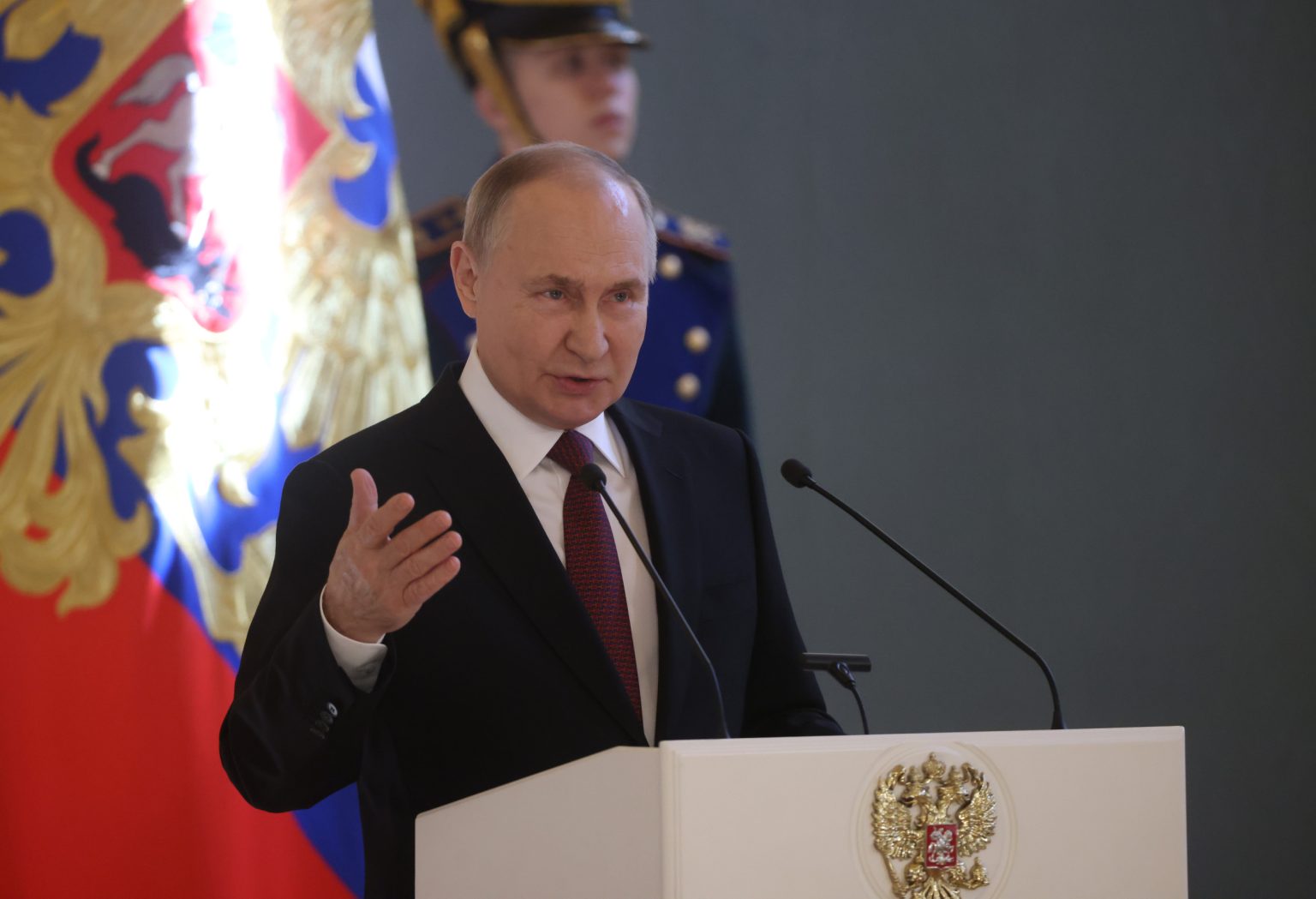Russian President Vladimir Putin has acknowledged that “radical Islamists” were behind the recent deadly terror attack in Moscow, which claimed the lives of at least 139 people. The Islamic State (IS) group IS-Khorasan claimed responsibility for the mass shooting at the Crocus City concert hall in a Moscow suburb. Putin suggested, without evidence, that Kyiv may have “ordered” the attack and that the suspects were apprehended while attempting to flee to Ukraine, indicating a possible link to Russia’s ongoing war with Kyiv. The U.S. Embassy had previously warned of imminent plans by extremists to target large gatherings in Moscow, including concerts.
During a televised address, Putin implied that the U.S. had a motive in trying to convince the world that Ukraine was not involved in the attack, while also suggesting that Kyiv may have paid or convinced the Islamist group to carry out the attack. He expressed skepticism about the claims that the attack was carried out by IS members, emphasizing the need to identify who ordered the atrocity. Ukrainian President Volodymyr Zelensky responded by calling Putin “sick and cynical” for accusing Kyiv of involvement in the attack and stating that Putin has been fueling terror for two decades. Zelensky criticized Putin for blaming Ukraine and emphasized that Putin himself is the “biggest opening for terror.”
The U.S. Embassy in Moscow had issued a warning earlier in the month about possible extremist plans to target large gatherings in the city, including concerts, which aligned with the attack that occurred at the Crocus City concert hall. U.S. officials confirmed that the IS group was responsible for the attack following the incident. Putin’s claims regarding the involvement of Kyiv in the attack were presented without evidence and drew a strong response from Ukrainian President Zelensky, who criticized Putin for attempting to shift blame to Ukraine. Zelensky portrayed Putin as fueling terror and violence for decades and suggested that with Putin’s departure, the demand for terror would diminish as well.
Putin’s assertion that Ukraine may have played a role in the terror attack in Moscow raised tensions between Russia and Ukraine, with both sides exchanging accusations and denials. The lack of evidence supporting Putin’s claims and the strong condemnation from Zelensky highlighted the ongoing conflict between the two countries. The U.S. Embassy’s prior warning about potential attacks in Moscow underscored the significance of intelligence and security measures in preventing such incidents. The situation highlighted the complexities of counterterrorism efforts and the need for international cooperation to address threats posed by extremist groups.


